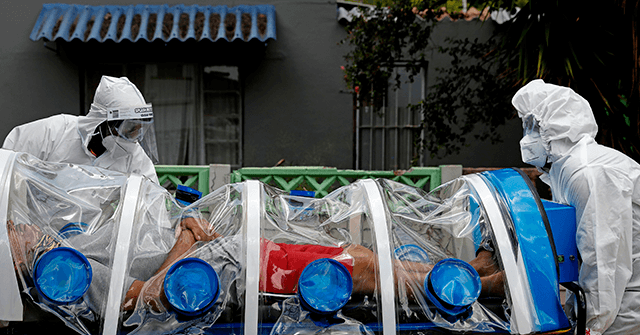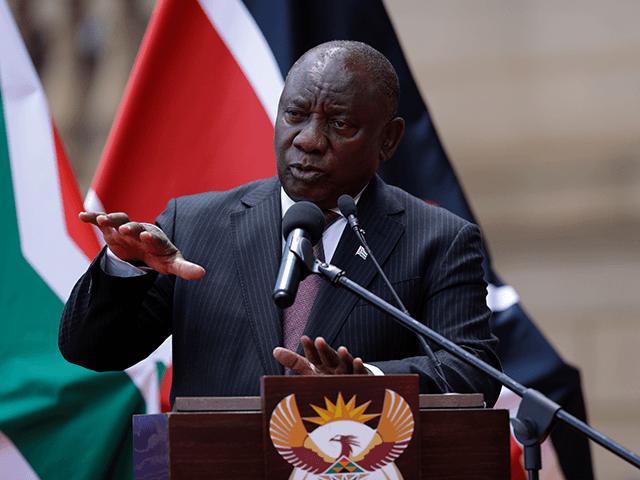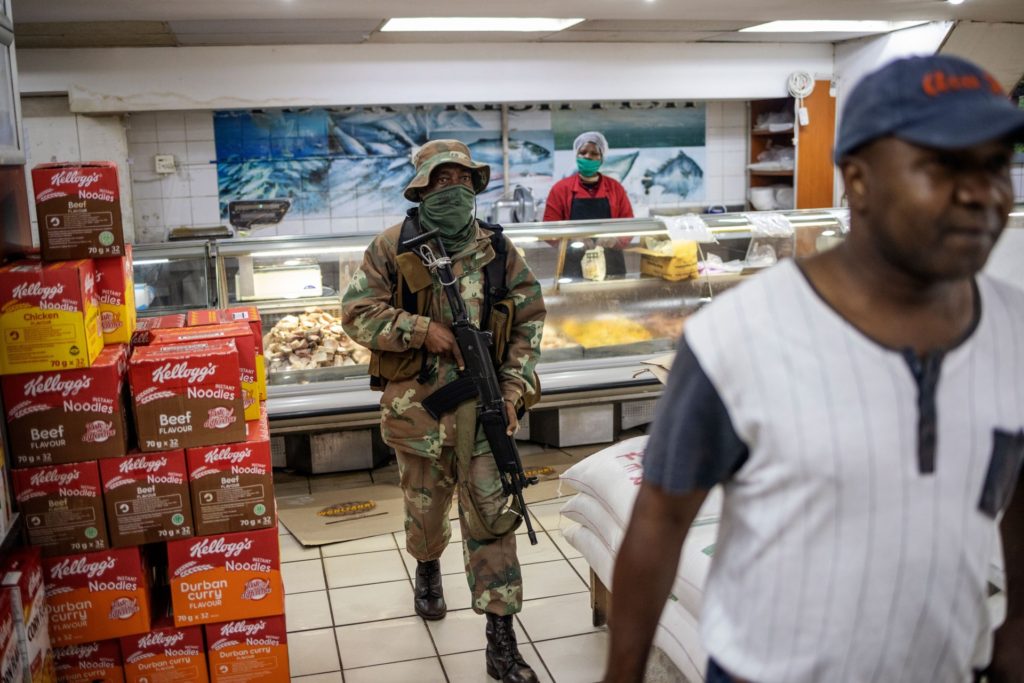
South African public health authorities revealed Thursday that they believe the surge in Chinese coronavirus cases fueled by the omicron variant in the nation is ending, leaving a record of lower hospitalizations and extreme cases than previous waves.
South Africa was the very first country to inform the World Health Company (W.H.O.) to the discovery of a new Chinese coronavirus variant in late November. The choice to notify global health authorities resulted in Western countries, including the United States, enforcing a travel ban on South African citizens and others in neighboring countries.
South African President Cyril Ramaphosa, who tested favorable for coronavirus throughout the present wave of the break out, loudly objected the travel bans as unscientific and bigoted, especially considered that a number of European countries, consisting of the Netherlands, revealed after the W.H.O. confirmed the presence of omicron that they had proof of the variant flowing on the continent prior to its discovery in Africa. The European countries prohibiting African travelers did not modify the limitations to consist of fellow European countries following those revelations.
Ramaphosa significantly boycotted the U.S. State Department’s “Summit for Democracy” this month to protest President Joe Biden’s travel ban versus Africans. Biden raised the ban with little excitement last week.
South African President Cyril Ramaphosa addresses the media in Pretoria, South Africa, Tuesday Nov. 23, 2021.(AP Photo/Themba Hadebe)South African medical professionals dealing with omicron patients regularly informed reporters all over the world that their patients did not appear to be experiencing severe signs on a large scale and South African federal government authorities eschewed the aggressive lockdowns they had actually executed throughout preliminary local outbreaks of coronavirus.
< img src ="https://media.breitbart.com/media/2021/12/GettyImages-1211432467-1024x683.jpg"alt ="A South African National Defence Force (SANDF) soldier look for people not using face masks in a grocery store in Hillbrow, Johannesburg, on Might 1, 2020, throughout a joint patrol by the South African National Defence Force (SANDF)
, the South African Authorities Service(SAPS)and the Johannesburg City Cops Department (JMPD).- South Africa started to slowly loosen its strict COVID-19 coronavirus lockdown on May 1, 2020, after five weeks of limitations. Social distancing and wearing masks in public and at offices will be obligatory.(Picture by Michele Spatari/ AFP)(Picture by MICHELE SPATARI/AFP through Getty Images)”width=” 1024″ height =”683″/ > A South African National Defence Force(SANDF)soldier look for individuals not wearing face masks in a grocery store in Hillbrow, Johannesburg, on May 1, 2020.(Photo by MICHELE SPATARI/AFP via Getty Images)”All indicators recommend the country might have passed the peak of the fourth wave at a national level,”the South African government stated in a statement following an unique cabinet conference Thursday, according tothe Guardian. The declaration highlighted, “While the Omicron variant is extremely transmissible, there has been lower rates of hospitalization than in previous waves.”
Health authorities in the nation supported their conclusion with the truth that they had documented a nearly 30-percent drop in recorded cases between the week ending on December 25 and the week previously, a reduction representing nearly 38,000 cases. South Africa’s National Institute of Communicable Illness (NICD) followed up the good news with a report on Friday revealingit had discovered that, even amongst those hospitalized, coronavirus patients contaminated with the omicron version were about 73 percent less most likely to be treated for a severe case compared to those contaminated with the delta version, the currently dominant alternative worldwide coming from India. This result follows a research study the very same organization released two weeks ago concluding that coronavirus clients are “80 percent less likely to be hospitalized if they catch the omicron variant, compared to other strains,” Bloomberg reported at the time.
“Compared to delta infections in South Africa between April and November, omicron infections are related to a 70 percent lower threat of extreme illness,” NICD said at the time. “Early analyses suggest a minimized risk of hospitalisation amongst SGTF [omicron] -infected people when compared to non-SGTF [omicron] contaminated people in the same period.”
Cases also appeared to be less extreme less frequently with omicron clients, NICD stated this week, when compared to those infected with the beta alternative, a mutation that originated in South Africa and caused a significant spike in cases there however did not go on to dominate international cases. Researchers now believe the beta version might have triggered more serious illness than the initial virus that originated in Wuhan, China, known as “alpha.”
The South African cabinet concluded that the data would enable them to get rid of a presently existing curfew and a number of other constraints in location since March 2020, lowering the coronavirus risk level to its most affordable setting. The staying restrictions prohibit indoor events of more than 1,000 people and outdoor events of 2,000 people.
South Africa had actually currently not increased constraints in action to the discovery of omicron, which permitted Christians in the nation to celebrate what international outlets described as a relatively normal Christmas.
“In Johannesburg, thousands … have actually ended up to take pleasure in the light display screens that have actually filled the upmarket Melrose Arch shopping precinct with flashing reindeer, glittering giant teddy bears and radiant Christmas trees,” Reuters observed recently. Night clubs and other recreational places brought in big crowds.
The U.S. Centers for Disease Control (CDC) shortened its advised quarantine duration from ten days to five days this week. More than five days after Christmas Eve, South African officials still recorded a decrease in reported cases, recommending the Christmas celebration did not have a negative effect on the country’s pandemic response.



